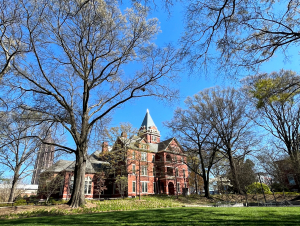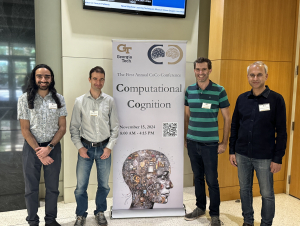To request a media interview, please reach out to experts using the faculty directories for each of our six schools, or contact Jess Hunt-Ralston, College of Sciences communications director. A list of faculty experts is also available to journalists upon request.
Latest News
Researchers honored for their innovations in AI speech processing and nanomaterials for medicine and electronics.
From tracking viruses like COVID-19 and influenza to training health professionals worldwide, Kristine Lacek, Georgia Tech’s first B.S./M.S. bioinformatics master’s graduate, is making a global impact in public health. She will return to Georgia Tech to deliver the keynote speech at the College of Sciences’ inaugural master’s commencement ceremony.
Created in partnership with the College’s new Science for Georgia’s Tomorrow initiative, Rising Tide will welcome seven researchers for two-year fellowships that are focused on faculty mentoring and skills development to apply for competitive faculty positions.
Hosted by the School of Psychology’s Center of Excellence in Computational Cognition, the event gathered over 100 researchers in the Atlanta area to explore cutting-edge work in computation, perception, decision-making, and more.
An interdisciplinary initiative between the Scheller College of Business, School of Industrial and Systems Engineering, and the School of Mathematics, M.S. QCF has been ranked No. 8 in the nation among the 2025 QuantNet Best Financial Engineering Programs.
The College of Sciences has launched Georgia Tech for Georgia’s Tomorrow, a new center focused on improving the lives of Georgians and their communities. The center will leverage research and teaching to address critical health and climate challenges across the state.








